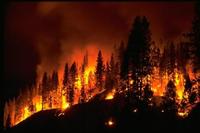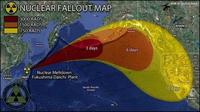-
Worries grow about Syria’s biological weapons capabilities, intentions
The debates among experts in Western and Middle Eastern intelligence services and militaries about the use of chemical weapons by the Assad regime revolve around how many times Assad has used chemical weapons, not whether such weapons were used. Neighbors of Syria have become increasingly alarmed – and, in private, have expressed their anxiety in discussions with the United States – about another illicit Syrian WMD program: biological weapons. The readiness of the Assad regime to use one proscribed weapon – chemicals — has led to growing unease among Syria’s neighbors that the regime may not find it too difficult to violate other weapon-related taboos. Biological weapons could give the Assad regime an effective means of retaliation because, if the weapon is well-designed, the lethal contents would spread easily without leaving tell-tale signs about the origin of the attack – or even evidence that there has been an attack.
-
-
FDA to require imported food to be inspected at the source

Each year about forty-eight million Americans get sick, some 128,000 are hospitalized, and about 3,000 dies from foodborne illnesses. Companies importing food into the United States will be held to higher safety and health standards if new proposed rules by the Food and Drug Administration (FDA) are passed. Under the proposal, the FDA would require importers to inspect food abroad before the food reaches American ports.
-
-
Crop pests spread as Earth warms, threatening global food security
Currently 10-16percent of global crop production is lost to pests. Losses of major crops to fungi, and fungi-like microorganisms, amount to enough to feed nearly 9 percent of today’s global population. These figures will increase further as global temperatures continue to rise, and a new study shows that global warming is resulting in the spread of crop pests toward the North and South Poles at a rate of nearly three km a year.
-
-
Tracking antibiotic-resistant strains of Salmonella from farm to fork

Every year in the United States, the various strains of Salmonella together are responsible for an estimated one million illnesses, 20,000 hospitalizations, and 400 deaths at an economic cost exceeding $3 billion. Salmonella Typhimurium accounts for at least 15 percent of clinically reported salmonellosis infections in humans nationally. The number of antibiotic-resistant isolates identified in humans is increasing steadily, suggesting that the spread of antibiotic-resistant strains is a major threat to public health.
-
-
Wildfires to worsen with climate change

Air quality has vastly improved over much of the United States in the past forty years as a result of government efforts to regulate emissions. Gradual climate change may contribute in the coming years to increases in significant, disruptive events like severe storms, floods, and wildfires. A Harvard model predicts wildfire seasons by 2050 will be three weeks longer, up to twice as smoky, and will burn a wider area in the western United States. These increasing wildfires may erase some of the progress made on air quality.
-
-
Fukushima radioactive plume to reach U.S. next year

The radioactive ocean plume from the 2011 Fukushima nuclear plant disaster will reach the shores of the United States within three years from the date of the incident, but is likely to be harmless, according to a new study. While atmospheric radiation was detected on the U.S. west coast within days of the incident, the radioactive particles in the ocean plume take considerably longer to travel the same distance.
-
-
Aquifer supplying a third of U.S. irrigated groundwater depleting quickly: study
The High Plains Aquifer of Kansas — also called the Ogallala Aquifer — supplies 30 percent of the U.S. irrigated groundwater. New study finds that if current irrigation trends continue, 69 percent of the groundwater stored in the High Plains Aquifer will be depleted in fifty years.
-
-
Nanoparticles in food pose health risks
Nanomaterials are increasingly used in water treatment, food packaging, pesticides, cosmetics, and other areas. There is a growing concern that these particles could pose a potential health risk to humans and the environment. In a new study, researchers have developed a reliable method for detecting silver nanoparticles in foods.
-
-
New understanding of key step in anthrax infection
Scientists advance A new hypothesis concerning a crucial step in the anthrax infection process. The research teams have explored the behavior of the toxins that rapidly overwhelm the body as the often-fatal disease progresses. Their findings suggest a new possible mechanism by which anthrax bacteria deliver the protein molecules that poison victims. Anthrax is easily weaponized; the findings could help lead to a more effective cure.
-
-
Irradiated mosquitoes provide malaria vaccine
A new malaria vaccine is derived from mosquitoes that have been irradiated but not killed. The radiation critically weakens the malaria parasite, Plasmodium falciparum, which is extracted from the insects’ salivary glands and administered intravenously to subjects.
-
-
Rapid response, imaging of injuries aided Boston Marathon bombing victims
According to the Centers for Disease Control and Prevention (CDC), bombing survivors have the highest incidence of injury to soft tissue and musculoskeletal systems with the most extreme injury being traumatic amputation, which is reported in up to 3 percent of cases. The Boston Marathon bombings resulted in three fatalities and 264 casualties, with the most severe injuries involving lower extremities of those located closest to the blasts. Blast injuries within civilian populations are rare in the United States, so when they do occur they challenge the medical community rapidly to respond to concurrent evaluation and treatment of many victims.
-
-
Drones help kill bugs dead
The Florida Keys Mosquito Control District is considering using a drone to spot shallow-water pools where mosquitoes breed along the Keys. The 2.2-pound, 2.5-foot-long drone would use infrared cameras to locate the shallow pools and allow the district rapidly to treat those areas with larvicide.
-
-
Heat waves to become more frequent, severe

Climate change is set to trigger more frequent and severe heat waves in the next thirty years regardless of the amount of carbon dioxide (CO2) we emit into the atmosphere, a new study has shown. In the first half of the twenty-first century, these projections will occur regardless of the amount of CO2 emitted into the atmosphere. After then, the rise in frequency of extreme heat waves becomes dependent on the emission scenario adopted.
-
-
Risks of SARS, MERS spreading greater than thought: scientists
Outbreaks such as the severe acute respiratory syndrome (SARS) and Middle East respiratory syndrome coronavirus (MERS) have afflicted people around the world, yet many people think these trends are on the decline. Quite the opposite is true. Scientists discovered that the genetic diversity of a viral population within a host animal could allow a virus to adapt to certain conditions, which could help it reach a human host.
-
-
U.S. radiation exposure guidelines based on unvalidated assumptions: toxicologist
In the 1950s regulators came to adopt the linear no threshold (LNT) dose-response approach to ionizing radiation exposure, which was later generalized to chemical carcinogen risk assessment. A UMass Amherst toxicologist now offers further evidence to support his earlier assertions that two geneticists deliberately suppressed evidence to prevent the U.S. National Academy of Sciences (NAS) from considering an alternative, threshold model, for which there was experimental support. “This isn’t an academic debate; it’s practical, because all of our rules about chemical and low-level radiation are based on unvalidated assumptions and scientific panel decisions made without sound evidence,” the toxicologist says.
-
More headlines
The long view
We Ran the C.D.C.: Kennedy Is Endangering Every American’s Health
Nine former leaders of the Centers for Disease Control and Prevention (CDC), who served as directors or acting directors under Republican and Democratic administrations, serving under presidents from Jimmy Carter to Donald Trrump, argue that HHS Secretary Roert F. Kennedy Jr. poses a clear and present danger to the health of Americans. He has placed anti-vaxxers and conspiracy theorists at top HHS positions, and he appears to be guided by a hostility to science and a belief in bizarre, unscientific approaches to public health.
